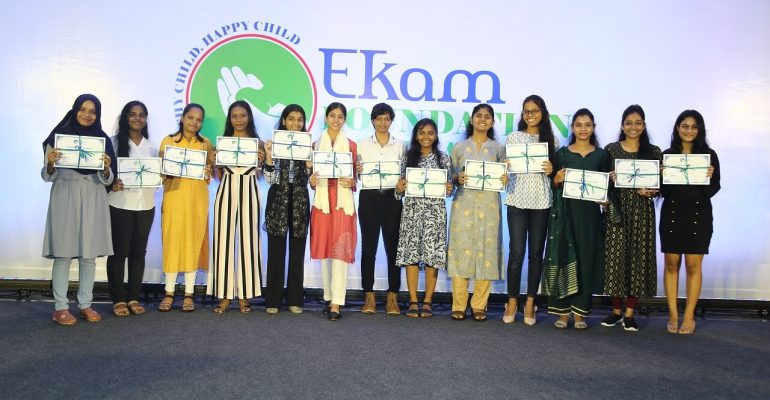A look inside the initiatives taken to continue the growth of Child Literacy Rate in India.
Education is every child’s birthright and is essential for their development. Exposure to different environments provides opportunities to help a child evolve and grow.
As a developing nation, India has seen a tremendous rise in literacy rates over the last few decades. To be considered literate, a person must acquire the ability to read and write in a language and possess basic comprehension skills. The literacy rate is determined by the population percentage that fits this criterion. According to the National Survey of India, the Literacy Rate of India has grown by 4% from 73% in 2011 to 77.7% in 2021. There is also a gender gap when it comes to the literacy rate, with the rate for men being 87.7% and the rate for women being 70.3%. The gender gap, however, has slowly been narrowing as various initiatives have been undertaken to educate the girl child and provide her with equal opportunities. Ekam Foundation Mumbai has been working in parallel with the nation’s vision to ensure that every child receives their right to education and to bridge the gender gap in literacy rate by offering scholarships to bright and deserving students.
Ekam Foundation Mumbai recognises the importance of school as an institution, as it introduces children to several new experiences. It allows children to expand their horizons beyond academics with extracurricular activities that help them garner new interests and curiosities. These activities ensure the development of various aspects of a child’s life. Children also benefit from interacting with their peers at school, which help them develop their social and personal skills. Skills acquired in school help children shape their future and help them make decisions about higher education and career options. It is critical for the development of our nation that every child receives a good education, for when it is time to pass on the torch, it should be passed on to responsible and capable hands. Students have benefitted from new government policies to ensure that education is accessible to all children. The latest initiative is the New India Literacy Programme, which promotes academic education and critical life skills like healthcare and awareness, financial literacy, vocational skills and many more. The state government has also announced that students from the SC/ST communities will be granted free access to state libraries to promote literacy.
There are a lot of challenges when it comes to mobilising the effort to make education accessible to all. Ekam Foundation Mumbai, is working to reach the most remote parts of India to support isolated and vulnerable children. In rural India, many parts do not have access to good schools, thus depriving children of formal education. There is discrimination between boys and girls, where families with limited resources opt to educate boys over girls. The gender gap in literacy rates can also be attributed to the fact that many schools do not adhere to proper sanitation standards and often do not even have toilets for girls. The infrastructure of many schools is very poor due to improper or misuse of allocated resources. It has been challenging for low-income families to receive a proper education. Many low-income families cannot afford to send their children to good schools because of the privatisation of schools and educational institutes. After the Covid pandemic, online education has risen because of easy accessibility. Still, underprivileged families cannot take advantage of it as they need access to tablets, laptops, or computers. This has also caused a disparity between the privileged and underprivileged, with only the former being able to receive proper and basic education. To ensure no child gets left behind, Ekam Foundation Mumbai, launched Ekam Education Fund (EEF) to help underprivileged children receive the education they deserve.
Ekam Education Fund (EEF) was launched in 2019 to support the education of children (from 6th to 12th standard) with underprivileged backgrounds regardless of their caste, creed, race, or gender. Since 2020, EEF has supported more than 450 students across 25 schools and 15 colleges pan India in over 20 states, including Maharashtra, Goa, Delhi, Tamil Nadu, and West Bengal. EEF has provided 30 school children with tablets for online classes. EEF also awards scholarships to deserving and aspiring students all over India. EEF has an existing network of 38 schools and 19 colleges across India and has reached out to 805+ students since the programme has started.
EEF aims to expand the programme to all states in India and offer full financial assistance to 1000 students by 2025.

